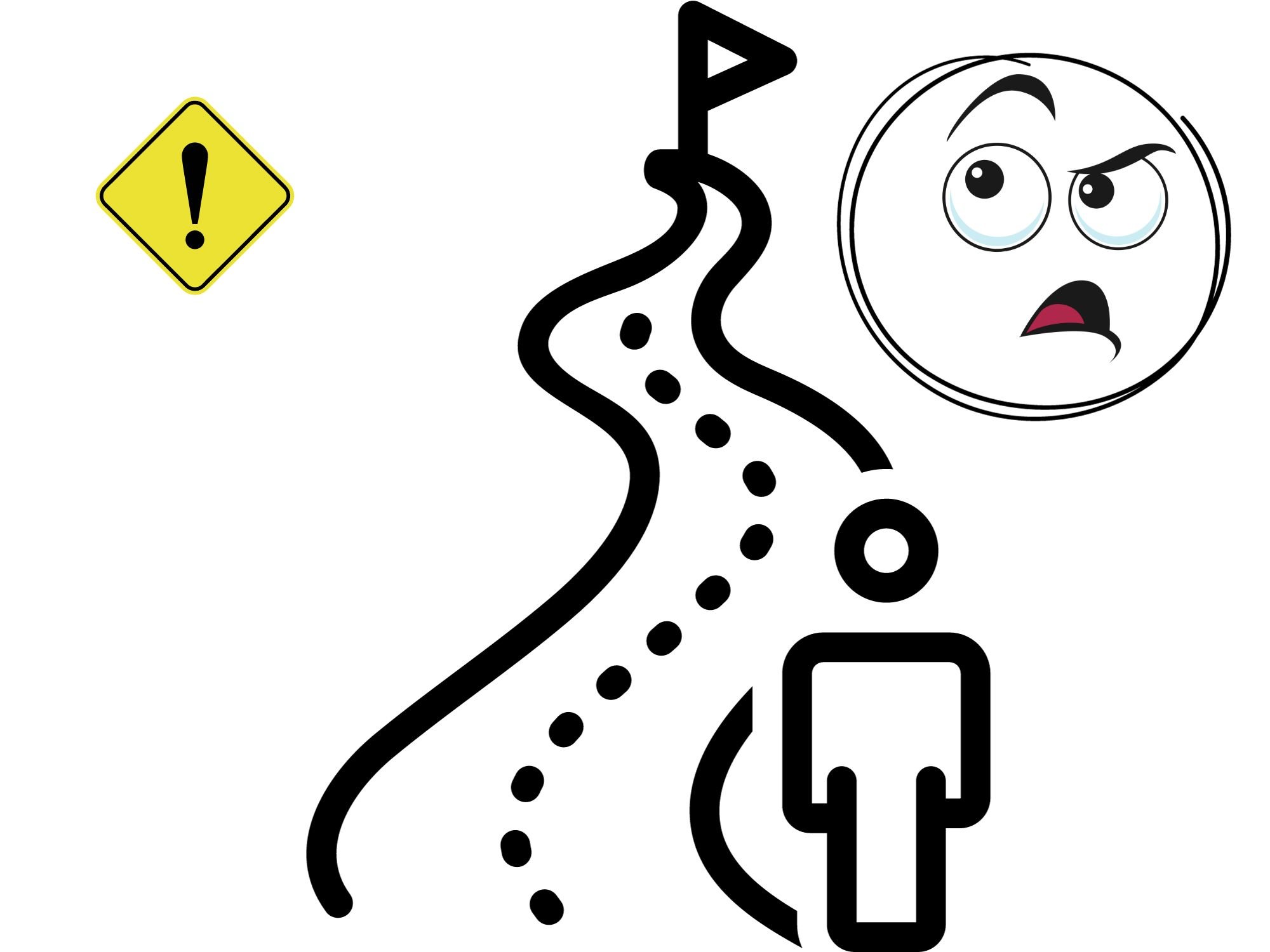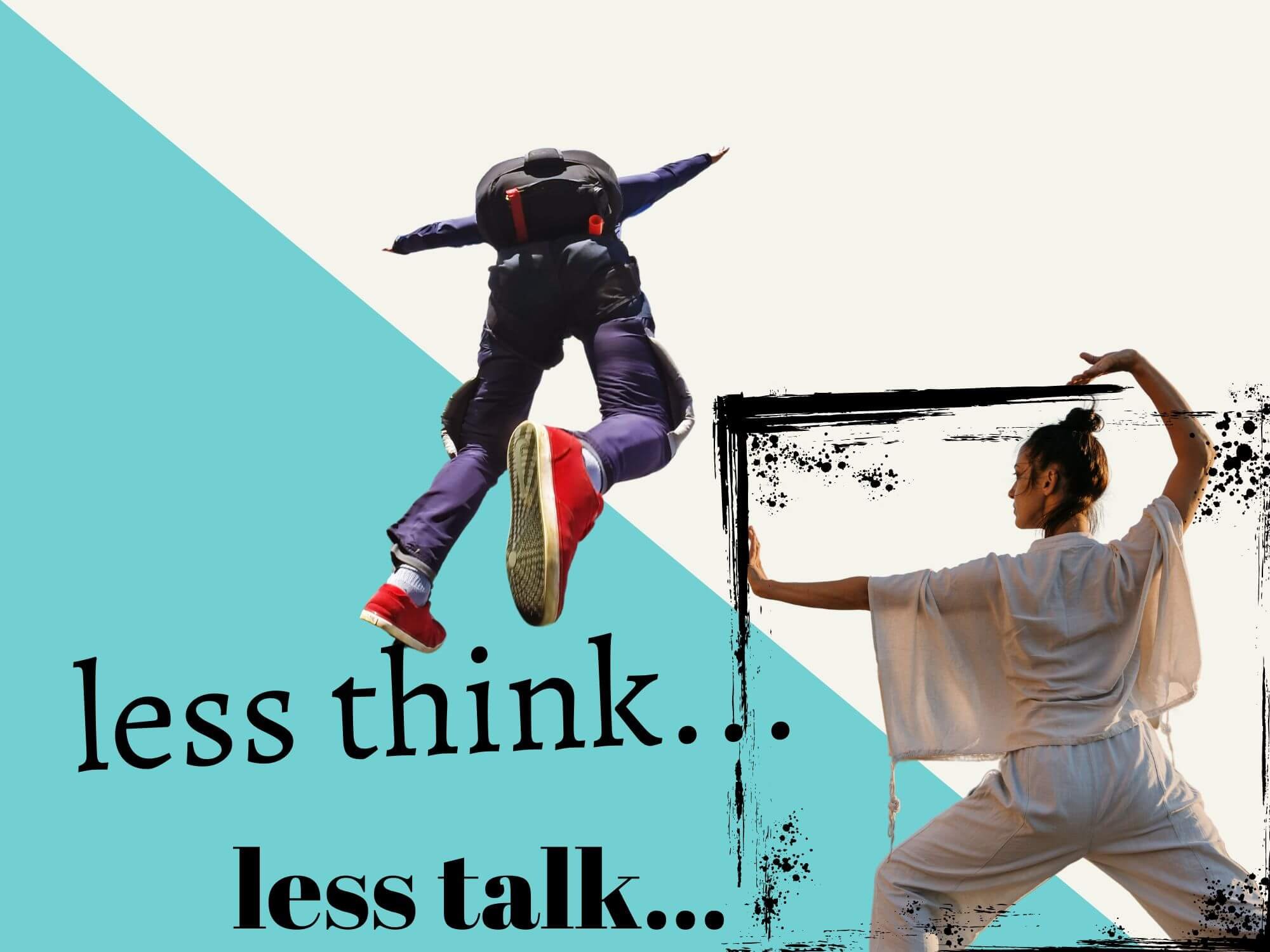The Arrival Fallacy Is Sneaky (so here’s how I avoid it)
I love to travel and making music is my passion. And one core thing I’ve learned from these pursuits is the importance of loving the journey, not the destination.
Although the destination is definitely still cool, sometimes it’s not quite what we expected. This is related to the arrival fallacy.
So this is my experience with things and how to avoid it.
Let’s get to it.
Table of Contents Show
What Is the Arrival Fallacy? (meaning + examples)
The arrival fallacy is the idea – nay, the illusion – that reaching some larger goal or endpoint will lead to long-term happiness.
But it’s all a trap – a fallacy, you see. And it’s one that’s all too easy to fall into.
So let’s look at some common examples that highlight this situation.
Arrival Fallacy Examples
That becoming wealthy will create happiness
That personal happiness will come from finding the perfect relationship
That more external stuff will make you feel more fulfilled
That a new car will make you feel successful
That lounging around all day, everyday with nothing to do will be blissful
That fame will make you happy or feel accomplished
Of course, there may be some caveats and nuances to these examples.
For example, getting more money can definitely make you happier, at least in the short term – especially if you’re experiencing a lot of emotional distress over finances.
But the key thing to remember here is long-term happiness.
So let’s keep moving and look at why it’s helpful to get to know the arrival fallacy better.
Why Should I Care About Arrival Fallacy?
Knowing about the arrival fallacy (and limiting its impact) is a smart move. But why?
When we fall for an arrival fallacy, it can leave us feeling disappointed and unsure about what to do next. Or as Charlie Kelly eloquently put, “What do now?”.
There can be feelings of listlessness or ennui after reaching a large life goal if there’s nothing that comes next.
It can feel like your purpose or mission is finished, or missing – this is no fun.
So here are some more reasons why it’s important to pay attention to arrival fallacies:
Improve your happiness and personal satisfaction
Limit feelings of stagnation
Cultivate a growth mindset
Become more resilient
Make happiness more sustainable
Enjoy a life of continuous improvement
Always have a meaningful purpose
How to Avoid the Arrival Fallacy (6 epic tips)
As a human, it’s pretty common to fall for an occasional arrival fallacy or two. But I think we can do better.
So try out the tips below and potentially avoid this trap altogether.
1. Become An Intrepid Explorer
Life's one big trip. So cultivating a love for the journey is the perfect way to avoid the arrival fallacy.
For me, this means becoming an explorer (in mind and in life).
Learning to become more process-oriented is a skill, but a great way to avoid the arrival fallacy.
The fallacy exists because we believe that some ultimate goal will solve our woes and bring us joy.
So by shifting our focus to all the exciting micro milestones along the way (not some finish line), we can effectively lessen the fallacy’s impact.
Here are some ways to become a process-focused explorer:
Travel more
Spend more time in nature (for example, hiking or kayaking)
Learn something new, like a language or a sport
Practicing living more in the present (keep reading for more on this)
Recommended: How to Have An Adventurer’s Mindset
2. Practice Present Moment Hype
When you’re grounded in the now, you’re less likely to get lost in outcomes or expectations.
Living in the present is an awesome way to avoid the arrival fallacy.
Present moment hype, or present moment awareness, is a state of enjoyment and love for your current situation. It’s a committed focus on the now (not the past or the future).
I say “hype” over “awareness” because hype is more exciting and elevated, which makes things more fun (rather than just being aware of it).
So I find ways to get hyped about the present moment. For example, getting lost in a flow state (as with music-making or traveling) is one fun way I stay grounded in the now.
This mindset creates detachment from outcomes or expectations.
And ultimately, this lessens the likelihood of an arrival fallacy popping up.
3. Reframe Goals As Projects
I like to reframe goals as projects. I first wrote about this idea in an article on approaching yearly goals like an artist.
The basic idea is this: goals can feel like dreams or just ideas, whereas projects are active and more tangible.
One of the key benefits to adopting this framework is avoiding an arrival fallacy. Here’s why.
Arrival fallacies are the result of reaching a goal and then having an unrealistic expectation for what follows.
But if you’re reframing your goals as creative projects that build upon each other (rather than destination points that simply end), you’re taking away a key ingredient of an arrival fallacy.
As a result, the impact and weight of an arrival fallacy will be drastically reduced.
At least, this has been my experience. So it’s definitely worth a try.
4. Don’t Attach Your Value to Results
Your value precedes and extends far beyond any goal achieved or results attained. Remembering this fact helps to avoid an arrival fallacy from taking hold.
When we assign our self worth to a result, the honeymoon phase of reaching that goal is short lived and can quickly turn into an existential crisis.
I believe this is due (in part) to the fact that we, as human energy balls, are expansionary by nature. We, like the universe and all things, don’t just stop growing, evolving or expanding.
So by separating your perceived value from results or metrics (whether they be good or bad), we can limit the likelihood of an arrival fallacy happening.
When self-worth is built on a love for the process, learning and making mistakes, it’s easier to let go of results and any perceived value you have for them.
Again, this is just my experience and viewpoint. It’s a bit deep, but it’s worth thinking about.
5. Create Checkpoints (not endpoints)
There are no finish lines. That would be incredibly boring anyways (hence arrival fallacies).
So let’s create checkpoints rather than endpoints.
Checkpoints represent key milestone moments in your journey or with your projects (goals). Checkpoints insinuate a resting point or landmark point rather than an endpoint.
It’s well accepted that checkpoints are nothing more than markers on your trails.
So when we create checkpoints in life (rather than endpoints), we’re assuming and accepting that there will be a natural continuation after hitting that point.
This means the arrival fallacy cannot take hold as we will forever be moving from one checkpoint to the next.
6. Become More Aware of Arrival Fallacies
Sometimes, the simplest solution to a problem is to shine a light on it.
But awareness takes practice. It’s s one part skill and one part habit. It’s learning to see things differently.
It’s the art of catching yourself in an old pattern and then changing it.
So if you’re hoping to lessen the impact of an arrival fallacy taking hold, just sit in the knowledge that it exists.
Shine a light on it without judgment or worry. Simply observe it, like a monk would.
After accepting it and understanding the fallacy, you can then start strategizing on how to get rid of it.
For example, you may start creating your next project, looking ahead to your next big checkpoint or embracing the moment as a time for rest and relaxation.
Whatever the case, becoming aware is always step one (even though this is the last tip).
Want More? Check Out These Sweet Reads!





